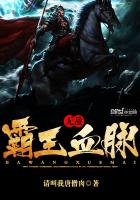Markelov's tiny little village, Borsionkov, consisting of about two hundred acres in all, and bringing him in an income of seven hundred roubles a year, was situated about three miles away from the provincial town, seven miles off from Sipiagin's village.To get to Borsionkov from Sipiagin's, one had to go through the town.Our new friends had scarcely time to exchange a hundred words when glimpses of the mean little dwellings of shopkeepers on the outskirts of the town flashed past them, little dwellings with shabby wooden roofs, from which faint patches of light could be seen through crooked little windows; the wheels soon rattled over the town bridge, paved with cobble stones; the carriage gave a jerk, rocked from side to side, and swaying with every jolt, rolled past the stupid two-storied stone houses, with imposing frontals, inhabited by merchants, past the church, ornamented with pillars, past the shops....It was Saturday night and the streets were already deserted-- only the taverns were still filled with people.Hoarse drunken voices issued from them, singing, accompanied by the hideous sounds of a concertina.Every now and again a door opened suddenly, letting forth the red reflection of a rush-light and a filthy, overpowering smell of alcohol.Almost before every tavern door stood little peasant carts, harnessed with shaggy, big-bellied, miserable-looking hacks, whose heads were bowed submissively as if asleep; a tattered, unbelted peasant in a big winter cap, hanging like a sack at the back of his head, came out of a tavern door, and leaning his breast against the shafts, stood there helplessly fumbling at something with his hands; or a meagre-looking factory worker, his cap awry, his shirt unfastened, barefooted, his boots having been left inside, would take a few uncertain steps, stop still, scratch his back, groan suddenly, and turn in again...
"Drink will be the ruin of the Russian!" Markelov remarked gloomily.
"It's from grief, Sergai Mihailovitch," the coachman said without turning round.He ceased whistling on passing each tavern and seemed to sink into his own thoughts.
"Go on! Go on!" Markelov shouted angrily, vigorously tugging at his own coat collar.They drove through the wide market square reeking with the smell of rush mats and cabbages, past the governor's house with coloured sentry boxes standing at the gate, past a private house with turrets, past the boulevard newly planted with trees that were already dying, past the hotel court-yard, filled with the barking of dogs and the clanging of chains, and so on through the town gates, where they overtook a long, long line of waggons, whose drivers had taken advantage of the evening coolness, then out into the open country, where they rolled along more swiftly and evenly over the broad road, planted on either side with willows.
We must now say a few words about Markelov.He was six years older than his sister, Madame Sipiagina, and had been educated at an artillery school, which he left as an ensign, but sent in his resignation when he had reached the rank of lieutenant, owing to a certain unpleasantness that passed between him and his commanding officer, a German.Ever since then he always detested Germans, especially Russian Germans.He quarrelled with his father on account of his resignation, and never saw him again until just before his death, after which he inherited the little property and settled on it.In St.Petersburg he often came in contact with various brilliant people of advanced views, whom he simply worshipped, and who finally brought him around to their way of thinking.Markelov had read little, mostly books relating to the thing that chiefly interested him, and was especially attached to Herzen.He retained his military habits, and lived like a Spartan and a monk.A few years ago he fell passionately in love with a girl who threw him over in a most unceremonious manner and married an adjutant, also a German.He consequently hated adjutants too.He tried to write a series of special articles on the shortcomings of our artillery, but had not the remotest idea of exposition and never finished a single article;he continued, however, covering large sheets of grey paper with his large, awkward, childish handwriting.Markelov was a man obstinate and fearless to desperation, never forgiving or forgetting, with a constant sense of injury done to himself and to all the oppressed, and prepared for anything.His limited mind was for ever knocking against one point; what was beyond his comprehension did not exist, but he loathed and despised all deceit and falsehood.With the upper classes, with the "reactionaries" as he called them, he was severe and even rude, but with the people he was ******, and treated a peasant like a brother.He managed his property fairly well, his head was full of all sorts of socialist schemes, which he could no more put into practice than he could finish his articles on the shortcomings of the artillery.He never succeeded in anything, and was known in his regiment as "the failure." Of a sincere, passionate, and morbid nature, he could at a given moment appear merciless, blood-thirsty, deserving to be called a brute; at another, he would be ready to sacrifice himself without a moment's hesitation and without any idea of reward.
At about two miles away from the town the carriage plunged suddenly into the soft darkness of an aspen wood, amidst the rustling of invisible leaves, the fresh moist odour of the forest, with faint patches of light from above and a mass of tangled shadows below.The moon had already risen above the horizon, broad and red like a copper shield.Emerging from the trees, the carriage came upon a small low farm house.Three illuminated windows stood out sharply on the front of the house, which shut out the moon's disc; the wide, open gate looked as if it was never shut.Two white stage-horses, attached to the back of a high trap, were standing in the courtyard, half in obscurity; two puppies, also white, rushed out from somewhere and gave forth piercing, though harmless, barks.People were seen moving in the house--the carriage rolled up to the doorstep, and Markelov, climbing out and feeling with difficulty for the iron carriage step, put on, as is usually the case, by the domestic blacksmith in the most inconvenient possible place, said to Nejdanov: "Here we are at home.You will find guests here whom you know very well, but little expect to meet.Come in.













